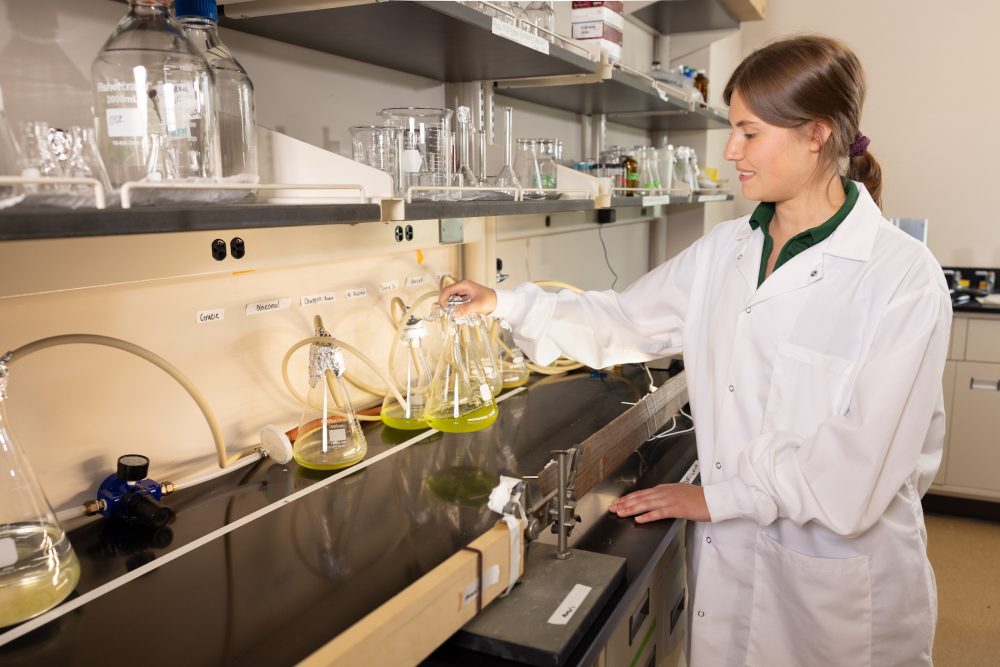Bachelor of Science in Environmental Engineering

The Civil and Environmental Engineering Department of the William States Lee College of Engineering announces the newest undergraduate major, the Bachelor of Science in Environmental Engineering (B.S.Env.E.). Launched in fall 2023 as the eleventh undergraduate engineering degree, this new program expands academic opportunities for students and provides the workforce with professionals prepared to assist in solving environmental challenges.
One of 3 BSEnvE’s in the UNC System
Skills
Students in the B.S. in Environmental Engineering program will have opportunities to assess, analyze, and solve real-world and locally relevant problems. Major areas of study include:
- Environmental Engineering: Students learn about contamination of soils, water, and the atmosphere. Examples include water treatment, wastewater treatment, hazardous and solid waste and air quality engineering. These pollution prevention and engineering issues are important across the globe, in particular America’s largest metropolitan areas like Charlotte.
- Water Resources Engineering: Students learn and apply engineering approaches to ensure adequate supplies of safe drinking water, and protect citizens from stormwater flooding and hazardous waste contamination. Examples include fluid mechanics/hydraulics, groundwater and surface water hydrology and stormwater control.
Hands-On Experiential Learning
The curriculum will provide students opportunities to engage with the community and work together to solve the unique problems present in a diverse urban environment as well as the areas within the region that are transitioning from farmland to residential and industrial.
Career Opportunities
North Carolina has a growing demand for licensed environmental engineers in its largest metropolitan region, a hub in the Southeast for manufacturing and industrial activity. Environmental engineers work in:
- Regulatory, compliance, and design functions related to environmental protection of air, water, and soil resources.
- Organizations that optimize drinking water treatment and wastewater treatment
- Prevention and mitigation of flooding, human health, and infrastructure impacts from stormwater.
Median annual wage: $92,120 (U.S. Bureau of Labor Statistics, May 2020)
Program Director: Bill Saunders
Academic Advisor: Kristy Lowman
Environmental Faculty






